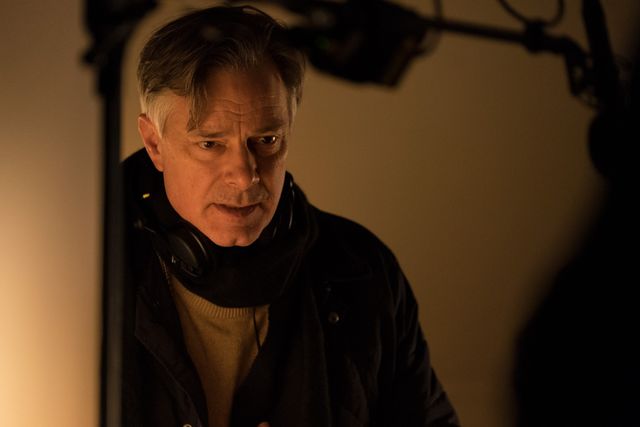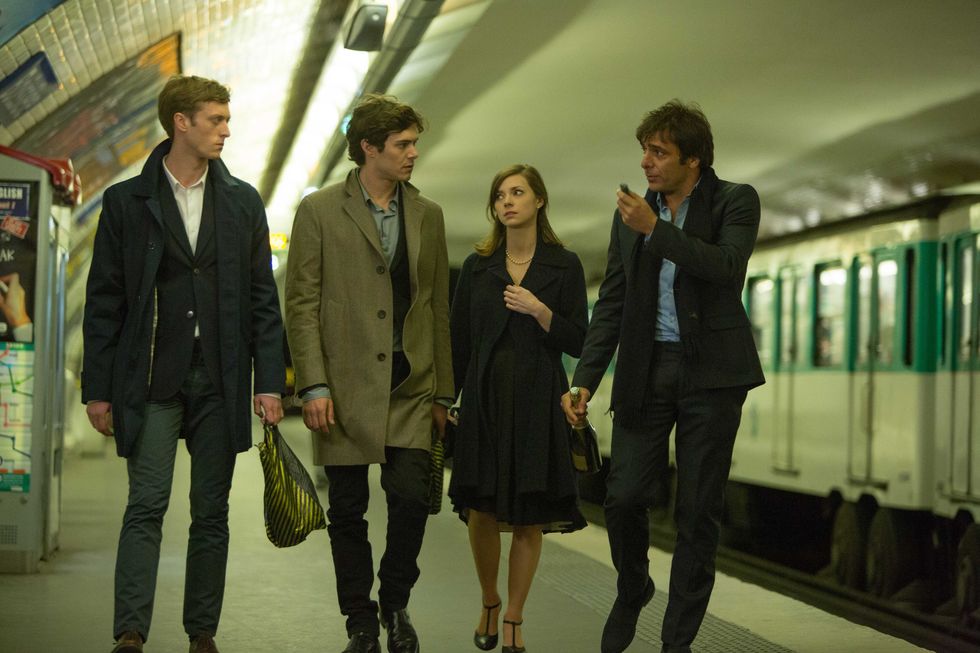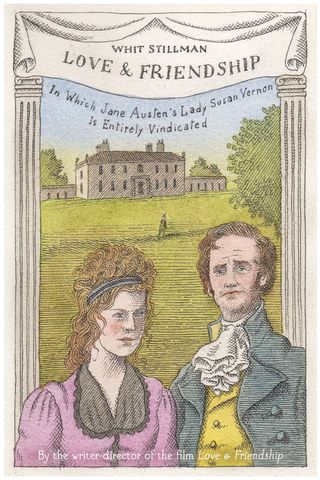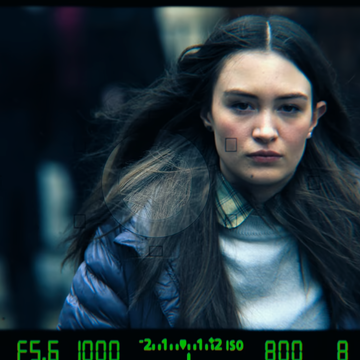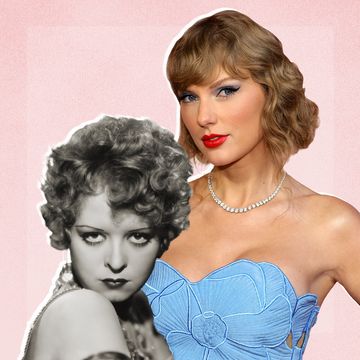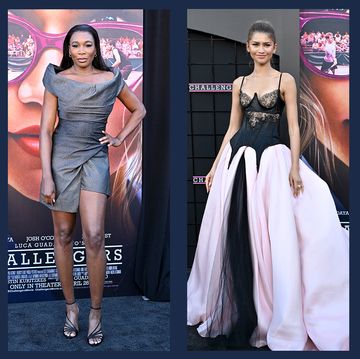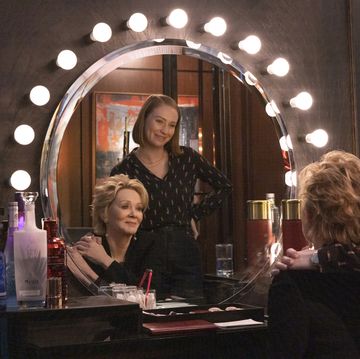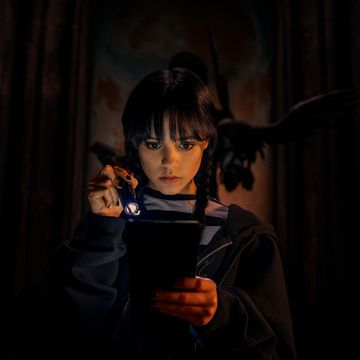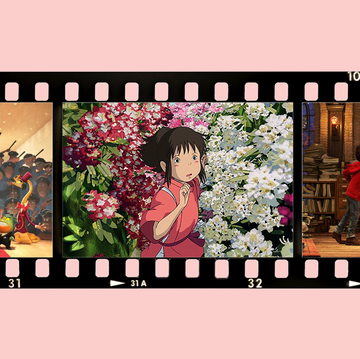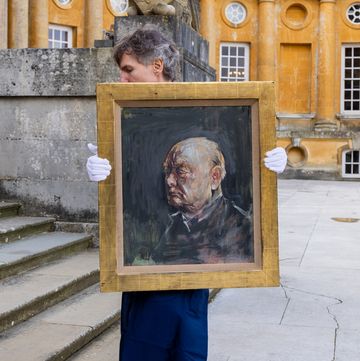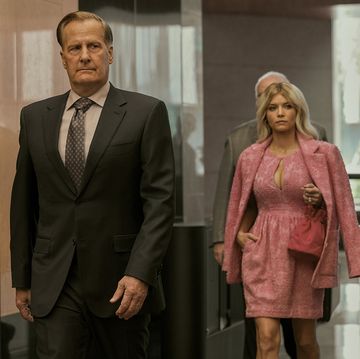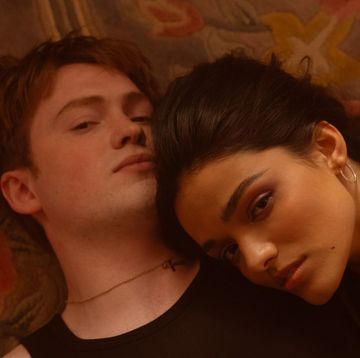On a perfect spring day, I arrive at the Three Guys diner on Madison and 89th Street, an Upper East Side landmark of (relatively) frugal eating. Inside, the diamond bright sun is replaced with the retro gloom of this time capsule, where waiters still slam dishes on tables, and the cuisine has resisted every food trend of the last 25 years. It's an appropriate place to meet Whit Stillman, who has carried the flag of anachronism since his Oscar-nominated debut in 1990.
Metropolitan launched Stillman's career as the WASP Woody Allen—a description at once disparaging in its simplistic typecasting and arguably true. He is an auteur who has navigated a very particular channel of sardonic romantics— the "urban haute bourgeoisie," as one Stillman character described his posse—whether on New York's Upper East Side or abroad. (In April, Criterion Classics released a box set of Stillman's first three films, a triology that includes 1994's Barcelona and 1998's The Last Days of Disco.)
On May 13th, Stillman's fifth film, Love & Friendship, opens, five years after his last, Damsels in Distress. Adapted from an unpublished story by Jane Austen, it is the perfect next step for a writer and director whose films—modern comedies of manners (or, as Stillman once put it, "mannerliness")—have channeled Austen's ironic romantic gaze; his satire is sweet and any mocking affectionate.
The charming and archly witty Love & Friendship (imagine Downton Abbey with just Maggie Smith) is a reminder, among other things, of Kate Beckinsale's way with a corset and a bon mot. In this second film with Stillman, she is reunited with Chloe Sevigny, who co-starred with Beckinsale in Last Days of Disco.
It has been reported that Stillman's godfather, the sociology professor E. Digby Baltzell, coined the term WASP. If only it were true. Still, the filmmaker's bio courses with blue blood: A great-great-grandfather founded Brownsville, Texas; a great-grandfather was one of the richest men in America when he died; his father, John Sterling Stillman, was assistant secretary of commerce under John F. Kennedy (they were classmates at Harvard). Stillman attended Collegiate School and Millbrook and Harvard. But while Stillman came from old money, the money was mostly gone by his generation. Despite early box office success, he remains not rich.
When Stillman walks into Three Guys—in his preppy uniform of suit, striped button-down shirt, no tie—he is every bit the shambolic patrician; a man who would look right at home in a Cheever novel or at J.G. Melon, never ostentatious but always appropriate. He immediately orders a club soda with lime, though it takes three tries before the waiter gets it right. "They know me here as the Earl Gray guy," he says with a slight smile as a cup of hot water is placed in front of him. And then, on parsimonious cue: "Oh, I'll keep the bag for later," he says, moving it to the inner pocket of his jacket.
During our chat Stillman's mother calls. "It's your dentist," he says after a moment. "You're going to your dentist at 11. Okay. Bye-bye." Stillman puts his phone away. "She's 95 and still running around the city," he says with noted appreciation.
Was it a relief to do a period film? In the past critics have often assumed you were writing about your own life rather than creating characters.
It's a huge relief that it's not like my story or somebody I know about. To work with someone else's writing—it has no negative to it.
You've described your previous films as period pieces without the costumes. On the flip side, in Love & Friendship, you can take any of the characters, put them in contemporary clothes, and they would feel entirely modern. What is it about Austen's writing that keeps it so current?
It's amazing, isn't it, how eternal it is. But what I find remarkable is that so much of the 18th century literature that I read is more accessible than reading your alternative weekly from ten years ago. People really aspired to write clearly. When I was doing the script for Metropolitan, whenever I needed a break, I'd open a Jane Austen novel. Her writing is so clarifying. I think in terms of British comic literature, Oscar Wilde and Evelyn Waugh are really important, too. Some people say that, with Lady Susan, it's as if Austen were channeling Oscar Wilde 80 years ahead of time.
I've often thought Wilde would have been a genius on Twitter. And speaking of social media: Damsels in Distress was a movie about four girls who are trying to keep things civil in a uncivil world—to bring back decorum and preserve traditional modes of behavior.
A retro Utopia.
Right. So now we're four or five years later, social media dominates our lives even more, and with it civility has pretty much gone out the window.
That's so true. It's funny because we got clobbered for not having enough social stuff in the film, for not having a lot of modern apperati. We had a cell phone in one scene, and there was a scene with a laptop, but I ended up cutting that.
Another reason to gravitate towards period films.
Yeah, I think it's a real problem. When I lived in Barcelona in the '80s I was distributing Spanish films and there were long scenes of people listening to voicemail messages. As time goes by, it becomes really tiresome—the outdated technology of years before. So if you can avoid it why not?
Brief detour: Do you watch Girls?
No comment.
I ask because some of the criticism directed at Girls sounds similar to the criticism leveled at your early films—that the characters are self-absorbed, entitled adults who behave like children, too white, etc. One critic described you as "the Dickens of people with too much inner life." He could just as easily have been talking about Lena Dunham.
It's a very good question. And I'm not going to comment. [Stillman laughs.] So critics mind that stuff but they don't mind the pornography? Give me a break. [He laughs again.] I don't like porn.
Oh, there's been backlash to the sex on Girls, but I take your point. And I appreciate your ever-more refreshing modesty, and Jane Austen's. Love & Friendship is based on a short, epistolary novel called Lady Susan, which she wrote when she was 18, though it didn't get published until after her death.
Yes. It's an awkward piece. It's very funny, more malicious—even immoral—than her later work, and very good. But it's hard to read through because it's in a letter format. It took a lot of time to do a draft, let it sit, do another draft, cut, cut, cut, add some things.
How, then, did you write the dialogue, which is really the star of the film?
It's like shuffling a deck of cards. So you have two letters between, let's say, Alicia Johnson and Lady Susan, and you try to come up with a conversation. Sometimes it was four letters, back and forth, to make a dialogue scene. I had this idea many years before I brought it to market, so if I was a house guest somewhere, I'd let them read what I'd written. My elder daughter [Stillman has two children, both in their twenties, with ex-wife Irene Pérez-Porro], and her friends enjoyed reading it, so I was getting good feedback, positive feedback, even before it was finished.
It must have been nice to work with Sevigny and Beckinsale again.
It was so much fun. The whole cast was great.
That actor, Tom Bennett, who plays the comic admirer of Lady Susan's daughter? He's quite a discovery.
What a lucky break. It turns out that he has a cult following in Britain. He did a sketch comedy show called PhoneShop and Chris Guest has used him. He loves Bennett.
Younger viewers may only know Beckinsale from those Underworld films, so her performance will be a revelation. She plays Lady Susan, a flagrantly manipulative widow, a mother of a teenager, who seduces younger and married men. A Real Housewife as written by Jane Austen, and Beckinsale is wickedly funny in the part.
It's amazing how quickly people forget that this is where Kate started out. She did a miniseries of Emma; she did the movie Cold Comfort Farm, and that was Austin-ian in derivation. I cast her in Last Days of Disco, which was also Austin-ian, based on her work in Cold Comfort Farm.
Love & Friendship was a hit at this year's Sundance Film Festival, which is where Metropolitan made its auspicious debut 26 years ago. It was a year after Sex, Lies, and Videotape put Sundance on the map. Things in the business have changed considerably since then.
Oh my gosh, yes. Metropolitan did really well at the festival, which didn't help us much with finding distribution. What everyone said was, "It's not Sex, Lies and Videotape." [Laughs] This is what the industry always does. And although it was eventually a success when it came out, it wasn't a success like Sex, Lives and Videotape. But, I mean, there are many ways you can reach an audience.
Including with Amazon, which is getting into theatrical distribution—a very good thing since Hollywood is less and less interested in making small, auteur-driven films like your own.
Roberto Rossellini once said that, where film is concerned, money is the root of all evil. I think that's true. Once the indie boom became a bubble and then went bust—which happened before the financial market crashed—Hollywood began treating film as a business again.
You once described your destiny as a "self-produced filmmaker." Do you prefer to work outside the studio system?
Yes, that's when I'm happiest. That's why I found the Mumblecore movement inspiring. [Its biggest discovery, Greta Gerwig, starred in Damsels in Distress.] They were operating the same way I did for Metropolitan—with low budgets, outside the system.
You've said that you find having no assets to be "pathologically exhilarating."
I love making cheap films. I really do. What I've found is that I work better when it's both a fairly low budget and a short schedule. It focuses the mind and it's a better atmosphere.
How long did it take to shoot Love & Friendship?
It was 27 days, but we did it in 26.
You finished a day in advance? That might be some kind of first in film history.
[Laughs] We were so galvanized for certain days—like we had Stephen Fry for just one day. We had a day when we had all of our big scenes—the dancing scene, and the wedding. We had all the extras and all the costumes and it was just hugely less expensive.
So it's possible to do a costume film on a small budget?
Absolutely. It's really surprising, and in a way less agonizing, than it was doing Disco. Being in a big city with a lot of cars is tough. All of this film was in a country location, and we shot it in Ireland, where they have all the apparatus for doing period films. It's sort of the Hollywood back lot for period films. You just call up the carriage company, and the carriage people arrive and you put them in their costumes, and they immediately look 18th century. Amazing faces and types. That's the other good thing about self-producing, and having a small budget—and also not paying yourself until the film makes a profit: When you don't have another $10,000 for the costume department, you can speak with authority.
You didn't pay yourself?
And I put money in the film, so I am in the red on this one, for now. It was very hard cobbling together money for this. Even after we started shooting I was raising money. Two weeks in, I called up my best friend, who had helped me get investors for Metropolitan, and they had all done really well and they instantly invested because they had all recouped their money last time. A sizable portion of the budget came from U.S. friends.
What are your pop culture obsessions these days?
Well, Amy Winehouse is dead.
Really? That's the closest reference you have to something current?
I liked that CeeLo Green song "Crazy."
Do you watch TV or go to films?
I'm totally devoted to '30s cinema. I'm living in Paris and I go to the old retro houses, which are very funky.
Are you a fan of film noir?
No, I hate it.
Really? Why?
It's too dark. The first ones were great—like Maltese Falcon is fun, and so was Laura. But I was just writing something about this the other day, and I was wondering if I should censure myself. I was saying that I thought film noir was one of the factors that killed cinema as a regular experience. Many things were happening at the same time—TV, studio turmoil—but when noir wasn't fun anymore, when it became depressing, why bother? You have to have something else—humor or romance.
Are you living in Paris again? You moved there in 1998, after Disco, but I thought you were back in New York.
It's not really intentional. I went back to shoot the pilot for The Cosmopolitans, and I got involved with the life I'd discontinued in 2007. I'm sort of tied there now. But I really like being in the U.S. I kind of discovered the rest of the country after returning from Europe and I lived in different parts. Twice I crossed the country by car. I just loved it. Everyone should do it. I had no idea that Tennessee and Arkansas were so beautiful!
The pilot for The Cosmopolitans aired on Amazon last August. It's a dramatic comedy about American expats living in Paris—modern love and friendship feels of a piece with your earlier work: witty, elegant, at once of the moment and nostalgic. Given the positive reviews, I was surprised it took Amazon this long to green light a full season.
It's actually okay that it took this long. I'm writing it now, but it's challenging. When a series is greenlit the network or studio wants you to write a bible of what's going to happen. And I've discovered that if I have to write a treatment or an outline of something I'm going to write, it's a disaster. Just a disaster. I get bad ideas that I can't get away from. So I like a story to arise as I'm writing scripts and see where it goes. I think I'm lucky that there was this time between the pilot and now because I have a change of direction. I think I was waiting for the idea I really want, and I have it now.
Will it have the same cast, including Chloe Sevigny, Adam Brody [a star of Damsels], and Dree Hemingway?
Pretty much. I don't think we can have as many people as in the pilot, but definitely Chloe and Adam. Now that the show's going in a new direction the pilot becomes problematical. It established characters in a milieu and a mood and we can use the characters, but it's not exactly Paris anymore; it's a European idea.
Before you leave, I should mention that your book—Love & Friendship: In Which Jane Austen's Lady Susan Vernon is Entirely Vindicated (Little Brown, $25)—is out May 3. This is the second time you've released a novel based on a film [see The Last Days of Disco: With Cocktails at Petrossian Afterwards, FSG].
It's not a novelization, by the way, it's a companion to the movie. It's lots of Austen, though done as a narrative rather than through correspondence. I did add a new character, Rufus, who is Susan's apologist nephew—he's desperate to clear her good name—though he is in debtor's prison.
Meet Whit Stillman at 5pm on Saturday, May 14, at the Corner Bookstore, 1313 Madison Avenue, New York City. The author will read from Love & Friendship: In Which Jane Austen's Lady Susan Vernon is Entirely Vindicated. A book signing will follow.
